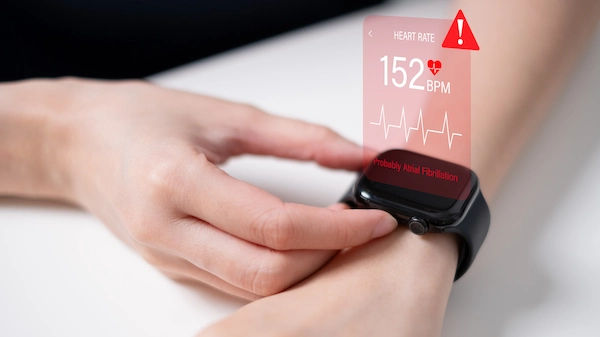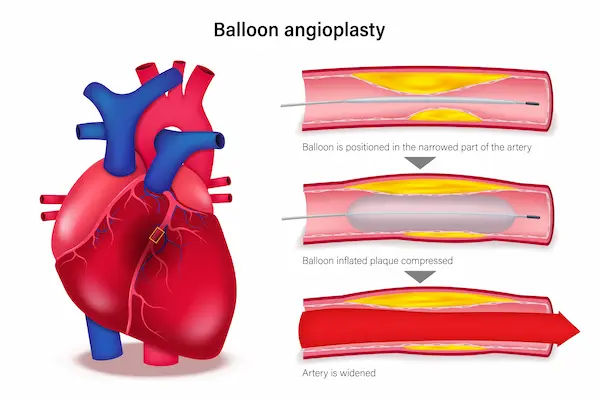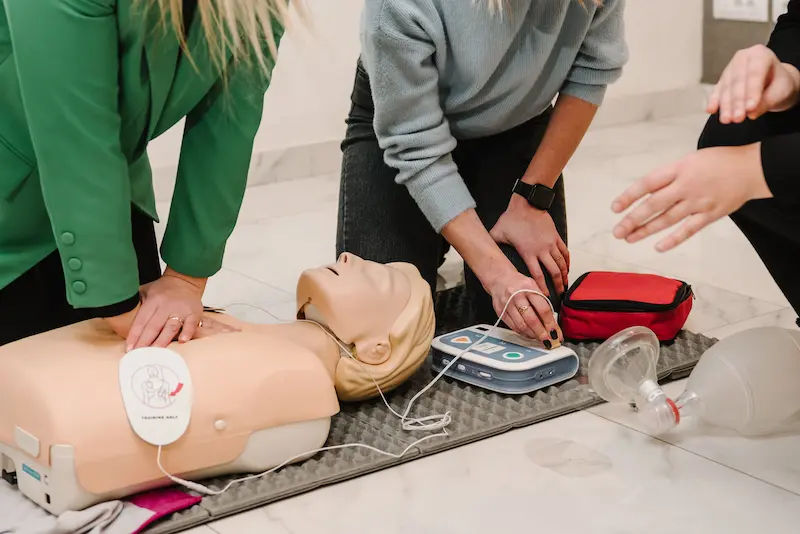Types Of Heart Arrhythmias Explained
Understand the different types of heart arrhythmias, their causes, symptoms, and treatment options to help manage irregular heartbeats and maintain a healthy cardiovascular system.

Written by Dr. M L Ezhilarasan
Reviewed by Dr. Rohinipriyanka Pondugula MBBS
Last updated on 13th Jan, 2026

Your heart is a remarkable organ that beats around 100,000 times a day, pumping blood to every part of your body. Normally, it follows a steady rhythm, but sometimes, this rhythm can become irregular—a condition known as heart arrhythmia. While some arrhythmias are harmless, others can be serious and require medical attention.
In this article, we’ll explain the different types of heart arrhythmias, their symptoms, causes, and how they can affect your health. We’ll also share practical tips for managing them and when to seek medical help.
What Is a Heart Arrhythmia?
A heart arrhythmia is an irregular heartbeat—either too fast, too slow, or with an uneven pattern. This happens when the electrical signals that control your heartbeat don’t work properly.
Common Symptoms of Arrhythmias
Palpitations (feeling like your heart is fluttering, pounding, or skipping beats)
Dizziness or lightheadedness
Shortness of breath
Chest discomfort
Fatigue or weakness
Fainting (syncope) or near-fainting spells
Some people may not feel any symptoms, while others experience severe discomfort. If you notice any of these signs, it’s best to consult a doctor.
Consult Top Cardiologists For More Information
Types of Heart Arrhythmias
Heart arrhythmias are broadly classified into two categories:
1. Tachycardia: When the heart beats too fast (over 100 beats per minute).
2. Bradycardia: When the heart beats too slow (under 60 beats per minute).
Let’s explore the most common types:
1. Atrial Fibrillation (AFib)
What happens? The upper chambers (atria) beat irregularly and out of sync with the lower chambers (ventricles).
Symptoms: Palpitations, fatigue, shortness of breath, dizziness.
Risks: Increases the chance of stroke and heart failure if untreated.
2. Atrial Flutter
What happens? Similar to AFib, but the atria beat in a fast but regular rhythm.
Symptoms: Rapid heartbeat, weakness, breathlessness.
Risks: Can lead to blood clots and stroke.
Consult Top Cardiologists For More Information
3. Supraventricular Tachycardia (SVT)
What happens? A sudden, rapid heartbeat originating above the ventricles.
Symptoms: Heart racing, chest pain, sweating.
Risks: Usually not life-threatening but can be uncomfortable.
4. Ventricular Tachycardia (VT)
What happens? Fast heart rate originating in the ventricles.
Symptoms: Dizziness, fainting, cardiac arrest in severe cases.
Risks: Can be life-threatening if not treated promptly.
5. Ventricular Fibrillation (VFib)
What happens? The ventricles quiver instead of pumping blood effectively.
Symptoms: Sudden collapse, loss of consciousness.
Risks: A medical emergency—requires immediate CPR and defibrillation.
6. Bradycardia (Slow Heartbeat)
What happens? The heart beats too slowly, reducing blood flow.
Symptoms: Fatigue, dizziness, fainting.
Risks: Can lead to heart failure if severe.
7. Premature Contractions (Extra Beats)
What happens? Early beats in the atria (PACs) or ventricles (PVCs).
Symptoms: Feeling a skipped or extra beat.
Risks: Usually harmless but can be bothersome.
What Causes Heart Arrhythmias?
Several factors can trigger an irregular heartbeat, including:
Heart disease
High blood pressure
Diabetes
Thyroid problems
Excessive alcohol or caffeine
Smoking
Stress or anxiety
Medications or stimulants
Electrolyte imbalances
Sometimes, arrhythmias occur without any clear cause.
How Are Arrhythmias Diagnosed?
If you experience symptoms, your doctor may recommend:
Electrocardiogram (ECG/EKG): Records the heart’s electrical activity.
Holter Monitor: A portable ECG worn for 24-48 hours.
Event Monitor: Records heart activity over weeks.
Echocardiogram: Uses ultrasound to check heart structure.
Stress Test: Monitors heart rhythm during exercise.
If needed, your doctor may refer you to a cardiologist for further evaluation.
Managing and Preventing Arrhythmias
Here’s how to manage arrhythmias:
Lifestyle Changes
Eat a heart-healthy diet: Focus on fruits, vegetables, whole grains, and lean proteins.
Exercise regularly: Activities like walking, swimming, or yoga can help—always consult your doctor first.
Limit stimulants: Reduce intake of caffeine, alcohol, and avoid tobacco use.
Manage stress: Try meditation, deep breathing, or mindfulness exercises.
Maintain a healthy weight: Keep your weight within a recommended range to reduce heart strain.
Medical Treatments
Medications like beta-blockers, calcium channel blockers, anti-arrhythmic drugs.
Pacemaker for slow heartbeats.
Implantable Cardioverter Defibrillator (ICD) for life-threatening arrhythmias.
Catheter Ablation, a procedure to destroy abnormal heart tissue causing arrhythmia.
When to Seek Emergency Help?
Call emergency services if you experience:
Chest pain
Severe shortness of breath
Fainting or near-fainting
Sudden weakness or confusion
Conclusion
Heart arrhythmias can range from harmless to life-threatening. If you notice unusual heart rhythms or symptoms, don’t ignore them—early diagnosis and treatment can make a big difference.
If you’re concerned about your heart health, consider booking a consultation with a cardiologist through Apollo 24|7. They can guide you with personalised advice and treatment options.
Consult Top Cardiologists
Consult Top Cardiologists For More Information

Dr. Anand Ravi
General Physician
2 Years • MBBS
Bengaluru
PRESTIGE SHANTHINIKETAN - SOCIETY CLINIC, Bengaluru

Dr. Tripti Deb
Cardiologist
40 Years • MBBS, MD, DM, FACC, FESC
Hyderabad
Apollo Hospitals Jubilee Hills, Hyderabad
Dr Moytree Baruah
Cardiologist
10 Years • MBBS, PGDCC
Guwahati
Apollo Clinic Guwahati, Assam, Guwahati

Dr. Zulkarnain
General Physician
2 Years • MBBS, PGDM, FFM
Bengaluru
PRESTIGE SHANTHINIKETAN - SOCIETY CLINIC, Bengaluru

Dr. E Prabhakar Sastry
General Physician/ Internal Medicine Specialist
40 Years • MD(Internal Medicine)
Manikonda Jagir
Apollo Clinic, Manikonda, Manikonda Jagir
(150+ Patients)
Consult Top Cardiologists

Dr. Anand Ravi
General Physician
2 Years • MBBS
Bengaluru
PRESTIGE SHANTHINIKETAN - SOCIETY CLINIC, Bengaluru

Dr. Tripti Deb
Cardiologist
40 Years • MBBS, MD, DM, FACC, FESC
Hyderabad
Apollo Hospitals Jubilee Hills, Hyderabad
Dr Moytree Baruah
Cardiologist
10 Years • MBBS, PGDCC
Guwahati
Apollo Clinic Guwahati, Assam, Guwahati

Dr. Zulkarnain
General Physician
2 Years • MBBS, PGDM, FFM
Bengaluru
PRESTIGE SHANTHINIKETAN - SOCIETY CLINIC, Bengaluru

Dr. E Prabhakar Sastry
General Physician/ Internal Medicine Specialist
40 Years • MD(Internal Medicine)
Manikonda Jagir
Apollo Clinic, Manikonda, Manikonda Jagir
(150+ Patients)



.webp)
